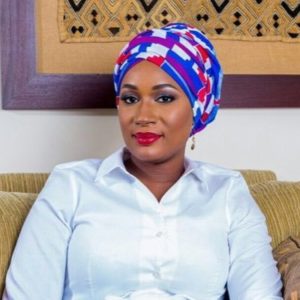Second Lady charges women to push for legislative reforms
 Mrs Samira Bawumia, the Second Lady, has charged women to rise up to their challenges, by pushing for legislation and other reforms to make governments appoint women into various leadership positions in their countries.
Mrs Samira Bawumia, the Second Lady, has charged women to rise up to their challenges, by pushing for legislation and other reforms to make governments appoint women into various leadership positions in their countries.
“Women should be a voice for the people. They can be very powerful in changing society, considering their leadership qualities,” Mrs Bawumia made the observation in her contribution to a panel discussion on: “Women and Government,” at the Yale University in Connecticut, United States.
It was organised by the Yale Association for African Peace and Development, a group of Yale Undergraduates that brings together scholars, professionals and activists who are integral in the pursuit of systematic advancement and development.
She noted that women did not necessary need the permission of men to fight for their course, but once they start, the men would facilitate and support them in achieving their objectives.
She said: “Statistical studies have shown that the more women participate in leadership positions, the more women will be there.”
Buttressing her point that women occupy very important leadership positions in Ghana, she cited the current Chief Justice, the Chairperson of the Electoral Commission, apart there were many other women in leadership positions either in the Executive, Legislature and Judiciary.
The Second Lady spoke highly of Ghana’s Ambassador to the United Nations, Mrs Martha Pobee, for being one of such highly qualified women, who excelled in her work and was therefore recognised and given a very important leadership role in the society.
“We need to mentor young women by leading exemplary lives to inspire them. Whatever you do, put in your best. You have an audience, do it well, they will recognise you,” Mrs Bawumia stated.
She gave the assurance that, she would use her persuasive power to affect the lives of people.
“I am having meetings with people who want to support what we are doing to improve lives, to reduce the level of deprivation and poverty among some of our people and to improve the existing health facilities to prevent maternal deaths.”
She acknowledged that certain societal pressures and stereotypes were to be blamed for militating against the appointment of women into leadership positions.
She said that was why education was very paramount.
The co-panelist, Professor Mathilde Mukantabana, Rwandan Ambassador to the United States said the cornerstone of her country’s accelerated development was the high number of women in Parliament.
She noted that 64 per cent of the Parliamentarians were women. In addition 12 out of the 32-member Cabinet Ministers are women.
She said drawing important lessons from the Rwandan genocide in 1994 that affected their economic, political and other aspects of social life, “we decided that women’s rights were critical so we set up the structures right from the village, communities to the central government level.
“For the past 23 years, we have tried to build reconciliation. Our mentality shift came about because our laws were changed, the issue of inheritance and other negative structures were tackled through vigorous education campaigns,” she pointed out.
She said: “Definitely education is going to be the hope for Africa.
“Today there is a new generation of Rwandan women, who are for change. Those who are there have proved themselves. They have overcome the problem of fear, Our President is a champion of women,” Prof Mathilde Mukantabana stated.
Source: GNA
